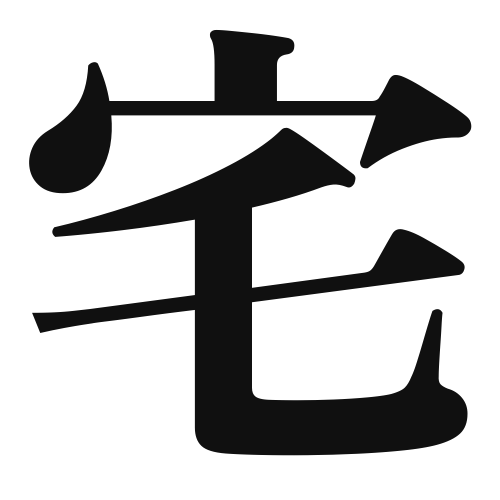1. Overview of Meaning
The kanji “宅” (taku) primarily means “home” or “residence.” It refers to a place where someone lives, emphasizing the concept of a dwelling or household.
2. Formation and Radical
Formation of the Kanji: The kanji “宅” is a phonetic-ideographic character (形声文字). It combines the radical for “roof” (宀) at the top, which signifies a building or shelter, with the phonetic component “tak” (匿) that contributes to its pronunciation.
Radical: The radical of “宅” is 宀 (kanmuri), which is commonly associated with buildings or structures, indicating that the character relates to a place of shelter.
3. Examples of Usage
Common Words and Phrases:
- 住宅 (じゅうたく, juutaku) – residence, housing
- 宅配 (たくはい, takuhai) – home delivery
Example Sentences in Daily Conversation:
- 私の宅はここです。 (わたしのたくはここです。) – My home is here.
- 宅配便が届きました。 (たくはいびんがとどきました。) – The home delivery has arrived.
4. Synonyms and Antonyms
Similar Kanji:
- 家 (いえ, ie) – house; while “家” refers more to the physical structure, “宅” emphasizes the concept of a home or residence.
Antonyms:
- 外 (そと, soto) – outside; this term represents the opposite of “宅,” indicating a place that is not a home.
5. Cultural and Historical Background
Relation to Japanese Culture: The concept of “宅” is deeply rooted in Japanese culture, where the home is often seen as a sanctuary and a place of family bonding. Traditional Japanese homes reflect this idea with their design and layout.
Proverbs and Idioms:
- 「家に帰る」 (いえにかえる, ie ni kaeru) – to return home; this phrase emphasizes the importance of home as a place of comfort and safety.
